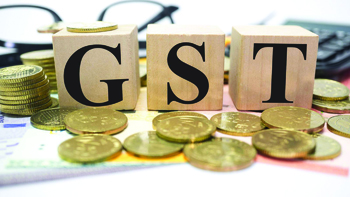
Indian corporates will definitely benefit from GSP-ASP integration with respect to GST compliances and help in faster adoption
GST is India's biggest tax reform and is proposed to be a single, unified and a comprehensive indirect tax levy which will combine all indirect taxes levied on goods as well as services by both the central as well as state government. GST is not just a tax reform but is an opportunity for companies to improve functional efficiencies and realize increased profitability by helping companies to go digital.
Recently, the parliament passed four supplementary bills after their approval from union cabinet and GST council. These bills are: Central GST Bill 2017; The Integrated GST Bill, 2017; Union Territory GST Bill, 2017; and GST (Compensation to States) Bill, 2017. After this the bill needs to be approved by the states and the President. As per the last count, twenty four states have already passed the State GST (SGST) Act while 7 states viz. Meghalaya, Punjab, Tamil Nadu, Kerala, Karnataka, Jammu & Kashmir and West Bengal have yet to pass the State GST (SGST) Act. The Act was passed between April 9 to June 5, 2017.
The GST Network (GSTN) will be the technology backbone of the new GST regime and will act as a uniform interact for the tax payer and provides a common and shared IT infrastructure between the centre and state governments. The platform also provides a settlement mechanism among the states, centre and other stakeholders which includes tax payers, accounting offices, banks and RBI. It is estimated that over 8 million taxpayers will upload in excess of 3 billion invoices in a month on the GSTN. This is unique to India’s GST network as this level of transaction volume has not been managed in any other tax governance system anywhere in the world.
GSPs (GST Suvidha Provider) and ASPs will provide much needed support to taxpayers in the IT ecosystem for GST filings and other related GST compliances. ASPs will focus on taking taxpayers’ raw data on sales and purchases and converting it into the GST compliant returns. These GST returns, will then be filed on behalf of the filer with GSTN via GSP. ASPs will act as a link between the taxpayers and the GSPs. Companies today are concerned about safety of their data and are keen to know how ASPs and GSPs will ensure data integrity and security while they interact with the Enterprise Resource Planning (ERP) systems to extract transaction records.
GSP and ASP Partnership
Bodhtree Consulting has signed strategic partnership with Infosys as an Application Service Provider (ASP) wherein the clients of Infosys will have an option to utilize GSP platform of Bodhtree Consulting for their GST filings. As per Bodhtree, the size of the business would be over Rs. 200 crore in the next three years.
EY, the leading global professional services organization has launched DigiGST, an integrated GSP-ASP solution that provides organisations end-to-end GST compliance support. DigiGST is hosted on the highly secure Microsoft Azure platform and combines EY’s tax domain expertise, technology capabilities and deep Sector knowledge.
DigiGST is built on a fault tolerant and secure Microsoft Azure cloud platform that has the world’s best standards for cloud privacy. This solution uses intelligent tax automation supported by industry specific algorithms and a reliable and resilient technology platform that is capable of handling a large volume of transaction data.
EY’s GSP will connect with the GSTN system seamlessly over a secured leased-line and upload taxpayer data in JavaScript Object Notation (JSON) format using Application Programming Interface (APIs) and the license key accorded by the GSTN. EY ASP will provide all the value-added services to make GST compliance easier. The DigiGST uses robust in-memory multilevel reconciliation for timely error detection and appropriate credit availment to taxpayers thus reducing their working capital blockage.
The DigiGST solution while being customisable, automated and intuitive is also highly resilient, providing the best security infrastructure and complying with the highest accepted industry standards. At each layer of the infrastructure and application, controls have been established to ensure data confidentiality and integrity. While the GSTN mandates all GSPs to be ISO 27001 certified, EY’s ASP solution too complies with the ISO 27001 data security standards.
Reliance Corporate IT Park Limited (RCITPL), a subsidiary of Reliance Industries has signed a Memorandum of Understanding (MoU) with SAP to launch ‘SARAL GST’ solution for taxpayers in the GST regime. The offering will enable taxpayers to be GST compliant and smoothly access the government’s GST System, once GST is rolled out from July 1, 2017. SARAL GST will leverage the expertise of RCITPL as GST Suvidha Provider (GSP) and SAP as Application Service Provider (ASP).
SARAL GST presents a value proposition for taxpayers focused around simplified operations, unified support and high quality of service, enhanced with scalability and security. As a GSP, RCITPL will connect ASPs to the government’s GST system through Jio MPLS network. SAP, in its role as ASP, will enable taxpayers to effectively create, manage and file GST Returns in a simple, safe and seamless environment. This collaboration of the two industry leaders thus offers the full potential of GST and boosts the success of Digital India initiative.
In light of its own capabilities and further leveraged by Jio’s infrastructure and capabilities, RCITPL has been licensed as ‘GST Suvidha Provider (GSP)’ by the Government to serve the Tax Payers for their GST needs. RCITPL is developing a state-of-the-art GSP service environment and further enrichment is being done by Reliance Jio.
GST Solution for MSMEs
The introduction of Goods and Services Tax (GST) is a remarkable step in the reform of indirect taxation and offers a great opportunity to organizations of all sizes and sectors to transform and enhance their shift into the digital economy. One of the biggest challenge for the small businesses and traders is to understand the enormity of GST and adopt real time implementation of it. With GST, it has become imperative for small businesses to digitize their transactions and the need of the hour is to provide adequate support to make a seamless transition. PC and laptop companies are joining hands with accounting software players to provide end to end GST solution to help transition MSMEs traders to GST regime.
Lenovo has announced the roll out of a comprehensive range of GST-ready solutions across its notebook, desktop, and all-in-one PC powered by Intel Core processors, and the tablet portfolio.
Lenovo GST advantage PCs start at an accessible price of Rs. 19,999. With this launch, Lenovo aims to enable small businesses and entrepreneurs with a choice of attractive offers from GST-compliant accounting, ERP and PoS solutions along with the purchase of select Lenovo PCs.
To start with, Lenovo has collaborated with Intel and three solution providers: IDOS, Marg and WeP Digital. Businesses that are currently evaluating the need to purchase computing devices can review all offerings available and select what is best suited to their needs. The Lenovo GST advantage offers also include online training programs specifically created for first-time users. Lenovo is looking to add more partners and also offer easy EMI solutions as part of this GST advantage rollout.
HP India in collaboration with KPMG has launched a comprehensive, secure and affordable invoicing GST solution to help transition millions of Micro, Small & Medium Enterprises (MSMEs) traders to Goods and Services Tax (GST) regime.
The end-to-end solution comprises of hardware from HP, GST invoicing software by KPMG, cloud storage for storing invoice data, uninterrupted GST Suvidha Provider (GSP) access, e-sign, GST registration and migration services. The solution facilitates the entire process from inputting of purchase invoices, generation of sales invoices, managing the input credit ledger, and generating reverse charges. The solution also helps businesses receive the tax credit through automatic reconciliation of purchase invoices to ensure a seamless transition to the new taxation structure.
Ensuring business continuity to users, HP will also enable specialized help desk support of tax experts on call, email and chat for GST related queries and operational assistance.
In addition to empowering MSMEs, the solution can also support larger organisations enforce a regime wherein their vendors, distributors and dealers are on the GST system, complying with the process and filing their GST returns accurately. The solution can also help indicate loopholes in the ecosystem in the form of a tax credit leak at any nodal point. The solution acts as a unified platform that can ensure ease of invoice generation and reconciliation across vendors and sub-vendors in the ecosystem.
Confederation of All India Traders (CAIT), the country’s largest trade body, Acer, one of the largest PC companies in the world and Tally Solutions, India’s leading business software provider has joined hands to launch “BIZGURU”, a one-stop plug and play business solution for all accounting and GST compliance needs. BizGuru comes with Acer’s world-renowned PC products and pre-installed Tally ERP 9 and is supported by CAIT. The solution will cater to all small businesses and traders across India who are currently using manual methods of accounting.
Acer’s GST customized range of computers perfectly complements Tally’s software, Tally ERP 9 which will be pre-installed and give businesses peace of mind that by merely switching on the solution. Tally’s education arm will also provide a certification programme to train the traders on the solution.
 Ankit Agarwal, Managing Director, Alankit
Ankit Agarwal, Managing Director, Alankit
Role of GST Suvidha Providers (GSPs): The primary purpose is to provide IT infrastructure and services to central and state governments, taxpayers and other stakeholders, thereby facilitating the implementation of the Goods and Services Tax (GST). The GST system project is a unique and complex IT initiative. GSPs can facilitate the tax payers in uploading invoices as well as filing of returns and act as a single stop shop for GST related services. GSPs can compile invoice wise data from the business units and upload invoice wise sales register (supply data) in GSTR-1 within 10 days from the end of the month.
Solutions provided: Alankit is envisaged to provide innovative and convenient methods to taxpayers and other stakeholders in interacting with the GST Systems from registration of entity to uploading of invoice details to filing of returns. As a GSP, Alankit with dozens of ASP (application Service Providers) , the IT based companies which have prepare their software for return filling under GST. Yes, we are providing customized applications to our clients which will be integrated with their current system and help them send data to the GST portal in encrypted format. We are also working on Mobile apps.
As part of the implementation package, Alankit plans to introduce a PoS (point of sale) device for smaller businessmen who haven’t yet adopted technology enabled modes of transactions, both for the purpose of Aadhaar enabled payment services and financial book keeping.
Training: We are prepared to fulfill our role as a GST Suvidha Provider and develop seamless interfaces for tax payers to interact with the GST network, we have expanded our existing teams by hiring competent and experienced Tax professionals and IT experts. Alankit GST leads are qualified indirect tax experts who will support customers in the GST compliance.
Target segments: We are targeting all segments like Large, Medium and Small enterprises and Professionals etc. As we have completed 25 years in service sectors, we have 21 regional offices and 4,779 business locations in 673+ cities having 3,300 corporate clients and 20 million customers that’s why have reputed identity in service sector so that we can cover all groups.
 Vinod Tambi
Vinod Tambi
President and COO, Excellon Software
Role of GST Suvidha Providers (GSPs): GSPs are primarily tasked with providing a secure gateway to the taxpayers to transmit data to GSTN and back. Additionally, GSPs can provide other compliance related services to the taxpayers including applications for filing, managed services in the space of compliance etc.
Solutions provided: Our company has two offerings in the GST space. First, an end-to-end tax return filing solution called EXACT SUITE and second, secure gateway for transmission of data by taxpayers to GSTN via EXACT PASS.
Results of the tests conducted between GSTN and GSPs: Making ASP/GSP software ready for compliance within the timeline is the biggest challenge right now since the rules are also not yet published and work at GSTN is still going on.
Training: Most of the impacted departments have completed training about the basics of GST system of taxation and general features of our application. We are in the process of educating our clients w.r.t the nuances of GST and usage of the application to achieve timely tax compliance.
Target segments: We are focused on partnering with software product companies, system integrators and large enterprises so as to expand our reach to maximum number of tax payers. Our target is to reach 20% of the tax payers who contribute to 80% of tax.
 Veera Venkata Satyanarayana Ganti, GSP Head, Bodhtree Consulting
Veera Venkata Satyanarayana Ganti, GSP Head, Bodhtree Consulting
Role of GST Suvidha Providers (GSPs): It is expected that the GSPs shall provide the tax payers with all services mentioned in the GSTN system in addition to returns we are maintaining their individual business ledgers (sales ledger and purchase ledger) and other value added services around the same. Another important service expected from GSPs is the automatic reconciliation of purchase made and entered in the purchase register and data downloaded in the form of GSTR-2 from the GST portal. In additional there will be sector-specific or trade specific needs which the GSPs are expected to fulfil.
Solutions Provided: Bodhtree’s GSP solution is built with the best of breed, open source technologies to enable secure, robust and fast communication. The solution provides secure communication, scalability, monitoring of activities, logs as required by law, utility APIs and up-to-date solution.
Results of tests conducted between GSTN and GSPs: Tests are quite successful and based on the test results the GSPs are enhancing the required applications and infrastructure. Training and capacity building pose as a major challenge as GSPs in pan-India implementation of GST in the country from July 1, 2017.
Training: Yes, training and capacity building are two very important aspects for the success of this project. We have started the training process and now it will be on going as this is the backbone of the entire success of the project.
Target segments: 25 big corporates
GSP market in India: So far we have not come to conclusion of the market size whereas capacity building and required infrastructure (construction of a super highway) is important for the success of the project hence, capacity building is the biggest challenge.
 Swaminathan S
Swaminathan S
Founder and CEO, IRIS Business Services
Solutions provided: As a GSP and ASP (Application Service Provider), IRIS is providing an end to end solution called IRIS GST that will take care of all the filing needs of taxpayers, right from user management and data upload to return preparation and filing. In phase 1, IRIS GST is a web based solution that incorporates several features to make transactions efficient and convenient for taxpayers, including a dynamic workflow engine, automated reporting and summary dashboards. In phase 2, we are planning to develop a mobile app to facilitate some of these activities.
Results of the tests conducted by GSTN and GSPs: We are happy to report that IRIS GST is the most active in terms of testing our application rigorously. We have topped the list and this is entirely a reflection of our commitment to providing a best of breed solution to filers. These numbers clearly show our product readiness, relentless focus on quality, and the testing efforts being put in by our GST subject-matter experts and software testers.
We see some concerns in implementing GST from July 1 – Apart from the large corporates, there is a general lack of awareness among the small corporates/SME segment on GST, its impact on their business and how to go about GST compliance. This will mean that come July 1, not everyone will be ready to hit the ground running.
GST’s two-way matching process means that it’s not enough only for the large corporates to be GST-ready, their entire supply chain, in some cases comprising of smaller vendors/suppliers, needs to fall in line as well. The other challenge for us specifically as a GSP is the dependence on GSTN APIs – for example, the recent changes in return formats means that new APIs will need to be released by GSTN. This increases the time for our own product to be fully ready and tested. Other ASPs and GSPs might be facing similar challenges which will in turn result in a larger delay in taking our products to taxpayers.
Training: We have over a 50 member team in IRIS who have been trained on GST. We also have a team of partners including Chartered Accountants and Indirect Tax experts on the domain side. Together we have trained several corporates on GST in face to face meetings as well as online sessions.
Target segments: We are targeting the corporate segment, primarily medium to large corporates.
 Arjun Mittal, Director & Co-Founder, SISL Group
Arjun Mittal, Director & Co-Founder, SISL Group
Role of GST Suvidha Providers (GSPs): GSPs have the responsibility of acting as a catalyst for filing GST. We will be providing pass through APIs for existing accounting softwares, ERPs and companies with a legacy ERP in place. We aim to provide our clients an end-to-end solution as we feel our responsibility goes beyond just the basic.
Solutions Provided: SISL is coming up with a GST application which is mobile compliant as well. We are trying to build in functionalities and features to minimise efforts for our clients to file their GST returns.
Results of tests conducted between GSTN and GSPs: The integration with the GSTN Server is going smooth generally. We are constantly updated about the release, and the setup of the open source portals & google groups has come a long way for GSPs. In a country like India where the scale of this reform is not even comparable to any of its counterparts, the major challenge will be to get the masses accustomed to technology. And SISL is putting in efforts in this regard for GST awareness and compliance.
Training: We have trained around 50 people within our organisation who have thorough knowledge about GST and who are travelling across different cities across India to conduct training sessions and seminars. We have also tied up with various institutes to provide GST trainings for budding GST experts. Apart from this, we are negotiating with several ASPs and are training them as well. Through these initiatives we aim to create a vast network of professionals and students who will be GST-ready come July 1.
Target segments: We are focusing on ERPs, accounting software’s, taxation software and firms looking to migrate from their legacy ERPs for GST compliance. We feel that most of the taxpayers are dependent on them, and by making them GST ready, we are choosing a smarter way.
 Tejas Goenka
Tejas Goenka
Executive Director, Tally Solutions
Ground Reality: There are 34 qualified GSPs and 160 new applicants in round 2 to serve the market of 80 lakh business. Out of the 80 lakh, most of them use Tally whereas 10-20 lakh do not have any software. In GSP side, we do not see any competition but the competition would be on ASP side as the focus would be on applications and not on GSP. There are 11 lakh paid users of Tally and around 50 lakh of unpaid users of Tally.
Business opportunity: The business opportunity is 10x in a timeframe varying from 1-3 years and it depends on how the government forces GST on traders as in India it is always wait and watch approach. What happens in July-September quarter will open up opportunity for the future and the question is how fast will the market grow.
Training: The basic principle is to educate Tally users and we are doing this exercise from November, 2016 onwards through our sales network, certified partners and associate partners who have played a key role so that they can provide digital experience end to end. Around 10,000 people are trained every week and we have trained around 6 lakh people since November. Around 6-8 lakh people have come through digital app and blog. We have a 350-400 seat call centre in Bangalore which offers 8 languages support
Mobile version of ERP 9: The company is planning to launch the mobile version by 2018 as presently we have a trial version.
Tally ERP 9 Version 6: This version is GST Ready and helps in providing the fastest and simplest GST setup for the company and it suppliers. It helps in GST compliant entry and printing and all data is GST compliant and helps in filing tax by providing data in the right format. For existing user, there is no change in Release 6 as there is no learning curve.
GST Challenges: There are concerns with respect to GST as change is for the better but the foundation needs to be correct. GST Council should look at input tax credit to tax payment of trader suppliers. E-way bill transportation accounts bill not closed as the transaction rules are still pending.
 Sanjay Phadke
Sanjay Phadke
Business Head - GST Services, Vayana Network
Role of GST Suvidha Providers (GSPs):
GSTN envisages a very important role of GSPs in making GST rollout easy and convenient for tax payers. GSTN believes in creating an ecosystem of GST Suvidha Provider (GSP) providing innovative solutions (Portal, Mobile App, Enriched API) either themselves or through its third party partners for making tax filing more easy and convenient to tax payers.
Solutions provided: Vayana Network stands for end to end GST Compliance. Services offered by us provide enterprises with the ability to proactively comply with GST regulations as well as ensure that their working capital is not impaired. Vayana Network ASP solutions and services can work of the GST processed input files to make them GST ready and help transit to and from GSTN. Apart from the usual tasks like tax preparation and return filing, our esteemed ASP partners provide add-on services including tax determination, validation, 500+ ERP connectors which integrates large number of billing systems and platforms like SAP, Microsoft Dynamics, etc., private cloud instances, on premise ASP solutions, simple functionality using excel files, transition services and many more.
Vayana Network Invoice Reconciliation solution is an extremely simple collaborative and shared trade transaction tool which enables enterprises to confirm Input Tax Credit (ITC) and reduce Provisional Tax Credit (PTC). It reduces workload and errors in the GSTR filing time window by identifying issues throughout the month and ensures even the smallest of trade counterparties to be able to maintain and confirm invoice records.
Challenges: The key challenges that we can foresee as a GSP in pan-India implementation of GST in the country are: Migration Challenges; Inability to comprehend pricing; and Technical readiness. Migration challenges to GST include: For service tax assesses, migration to GST will pose as a huge challenge; Multiple registrations is perceived as a pain factor for service sector companies (BFSI, Telecom, Media, etc.) having national footprint; Many are not aware about workflow and the timeline they have to adhere to. The awareness around rules and compliance process has still not reached grassroots; Supply chain for most of the corporates are not yet ready for GST adoption, especially SME suppliers and dealers; Majority of tax paying businesses are not geared up to the invoice reconciliation and input tax credit issues that they would be exposed to once GST rolls out; and there would be a lot of pressure on the chartered accountant community to manage their clients’ processes in a timely manner. They have to beef up their team by hiring more resources to manage large volumes of filing processes in limited time.
Industry is not used to the pricing paradigm that is expected in GST ecosystem. Here businesses have to pay a service provider an amount which linked to the volume of transactions, either number of invoices for ASP or API calls for GSP, which is a new concept. Tax payers believe that this is going to significantly increase their compliance cost.
In technical readiness entire GST compliance process will be technology driven. However, industry at large is under prepared for the migration; GSTN, GSP and ASP ecosystem readiness with ISO audit certification, MPLS setup, application development, evolving APIs, lack of standardised technical documentation for developers poses a problem to provide complete solutions; and tax payers are forced to select their solutions based on some informed judgements. Selection of ASP and GSP is still under way for over 80-90% of the corporates.
Training: With the entire GST compliance process to be technology driven and industry at large being under prepared for the migration, our GST team has been extensively trained to ensure right knowledge and awareness is being imparted to the businesses regarding GSP services. For ASP services, our partners have competent teams to train the corporates with respect to GST so that there is smooth transition from July 1, 2017.
Target segments: We cater to the entire spectrum multinational, large, medium or small enterprises, application solutions providers, tax consultants or tax preparatory service providers since we understand their individual needs and can provide a solution which would be suitable for their business.
 Sanjeev Arora, Chief Executive – Digital Services, WeP Solutions
Sanjeev Arora, Chief Executive – Digital Services, WeP Solutions
Role of GST Suvidha Providers (GSPs): GST Suvidha Provider will enable the taxpayers to connect to GSTN systems for uploading invoices, GST return filing for outward register, inward register and monthly returns. GSP gateway will also be an interface between multiple Application Service Providers (ASPs) and GSTN. A GSP is required to create a robust, seamless, secure, scalable infrastructure for tax payers and ASPs to connect to GSTN.
Solutions provided: WeP has developed multiple solutions to provide GST services in India. WeP has built a robust GSP infrastructure which will be an interface which between multiple Application Service Providers (ASPs) and GSTN. This GSP gateway is highly secure and scalable where ASPs can connect and offer seamless services to its customers. WeP has also built its own ASP platform for large, medium and small enterprises. This ASP platform provides many value added services to taxpayers in terms of dashboards, work flow solutions, reconciliations, input tax calculations, alerts & notifications, e-sign etc. for filing returns. These solutions will enable enterprises to seamlessly file their returns and be compliant on time.
In addition to this, WeP has a strong presence in servicing unorganized sector through its own designed billing solutions/POS devices. WeP has now developed India’s first and the only “GST Ready Device” which will enable small retailers/traders/outlets to do manage their business in terms of bill generation, purchases & inventory management, cash management as well as help them file GST returns seamlessly and make their life easier. These GST ready devices are wi-fi connected to ASP platform and uploads invoices and prepare GST formats automatically. This will be a huge benefit to unorganized sector which is struggling to understand GST and how to comply with this new tax regime.
Training: GST is not only seen as a tax reform but as a business transformation. The new tax regime will throw many opportunities for businesses to create new processes to improve efficiency and productivity. WeP has been conducting many seminars at regional levels to spread awareness of GST across the country and connecting with the tax payers to explain the compliance solutions.
Target segments: WeP has a multipronged strategy to address GST market in India. It has developed solutions for ASPs, Large and Medium enterprises and Micro enterprises through it’s GST ready devices.
Pravin Prashant
pravin@varindia.com
See What’s Next in Tech With the Fast Forward Newsletter
Tweets From @varindiamag
Nothing to see here - yet
When they Tweet, their Tweets will show up here.




























